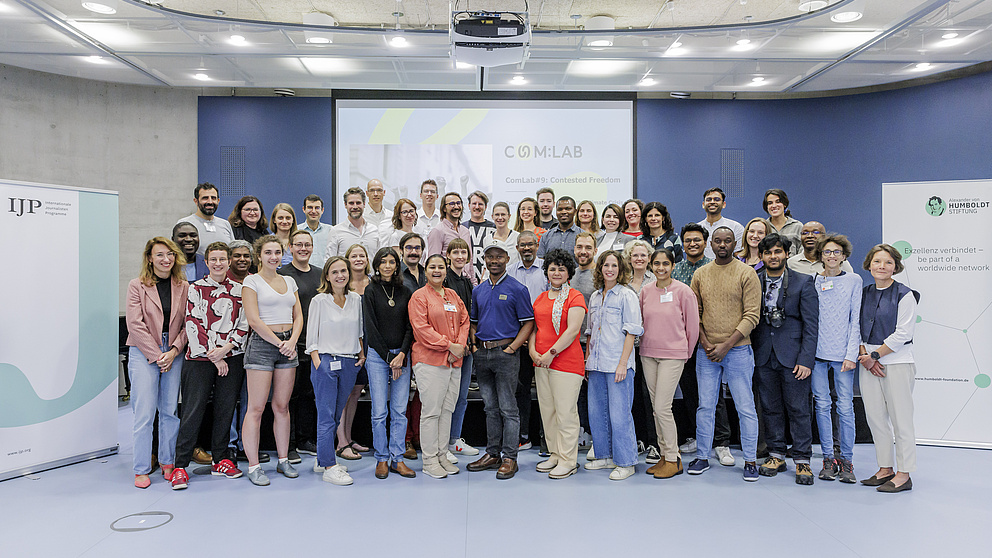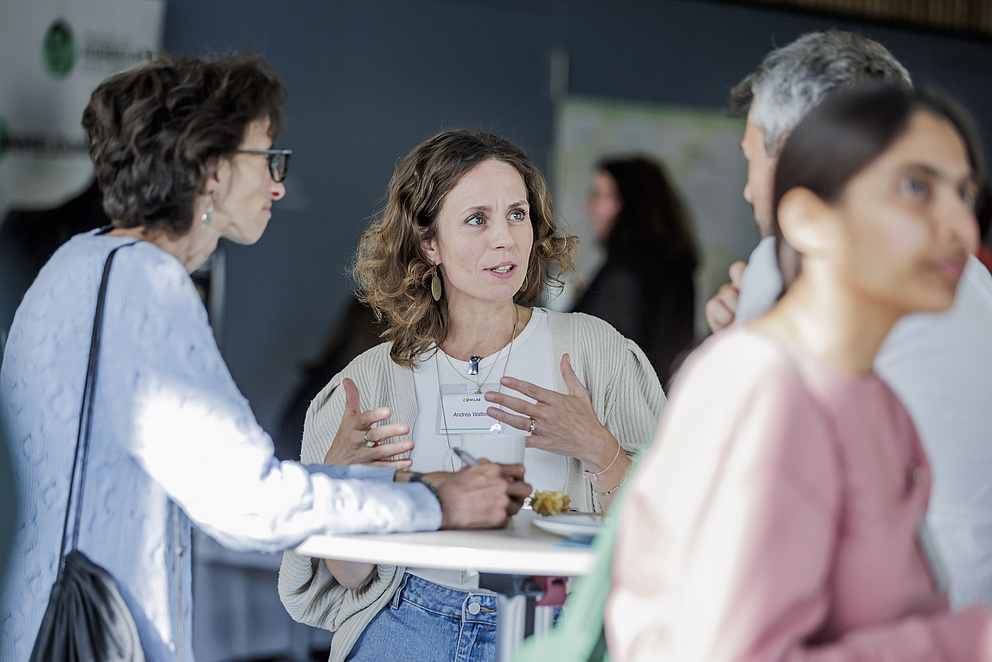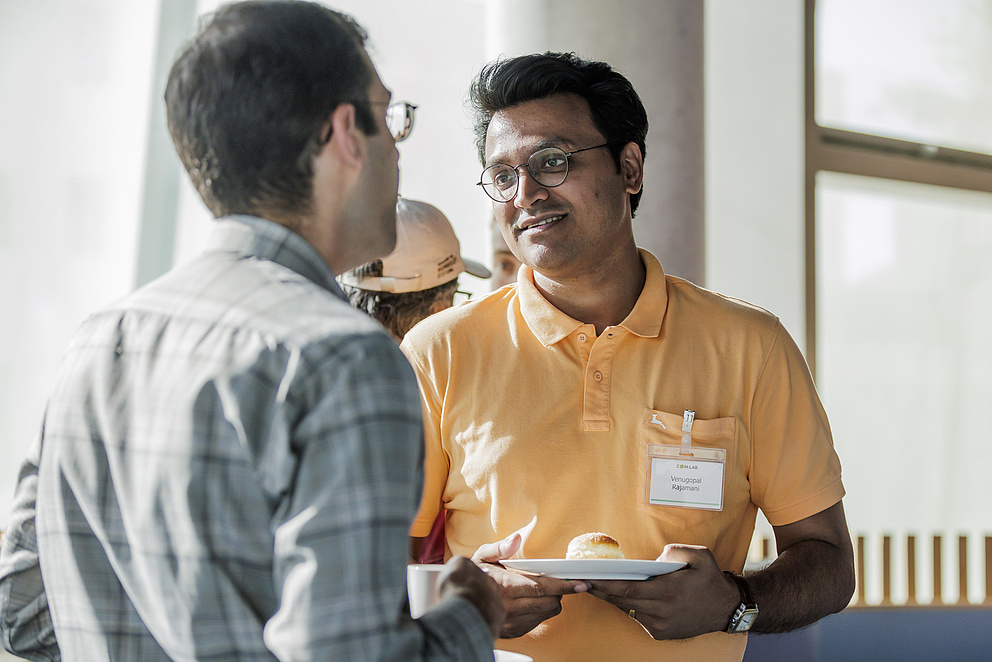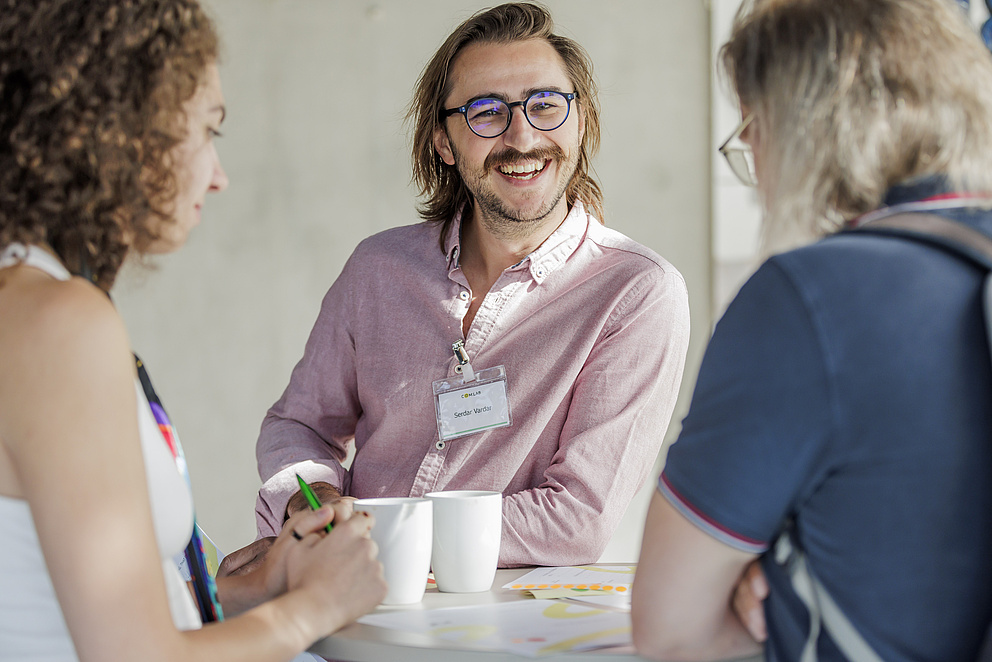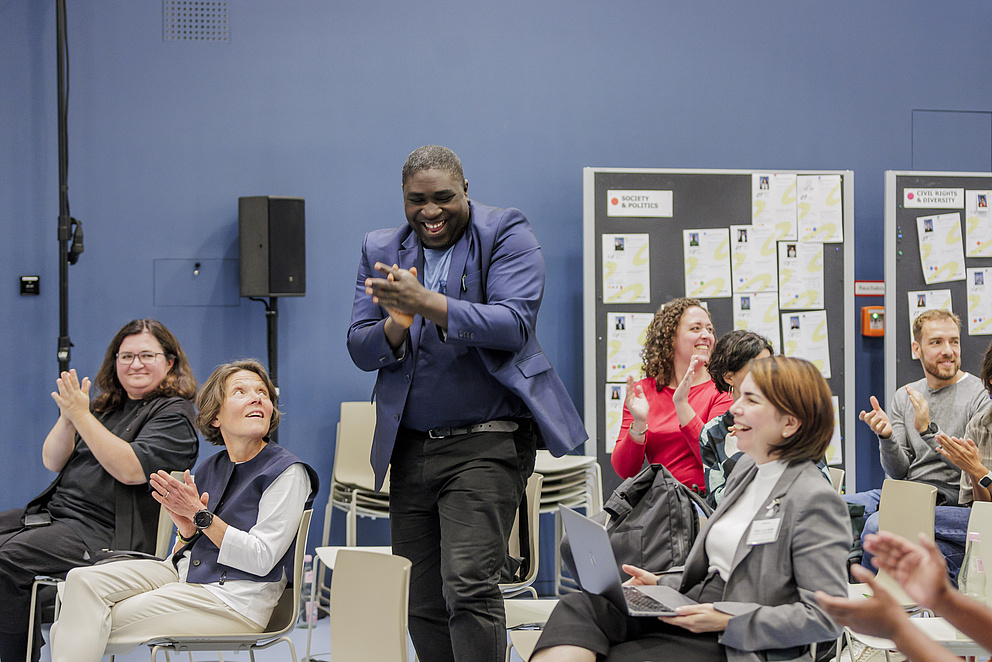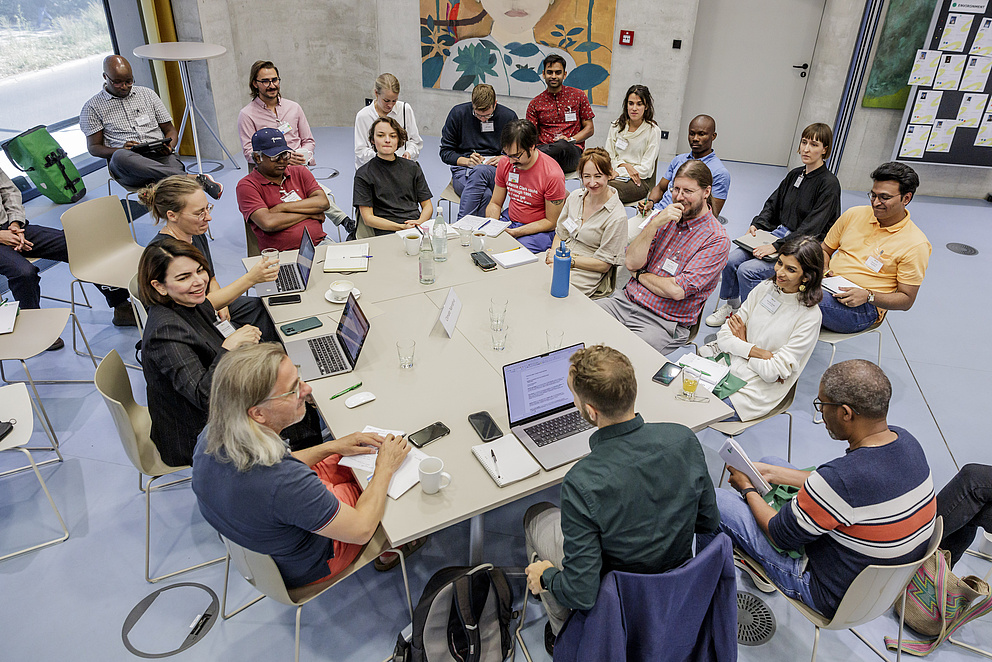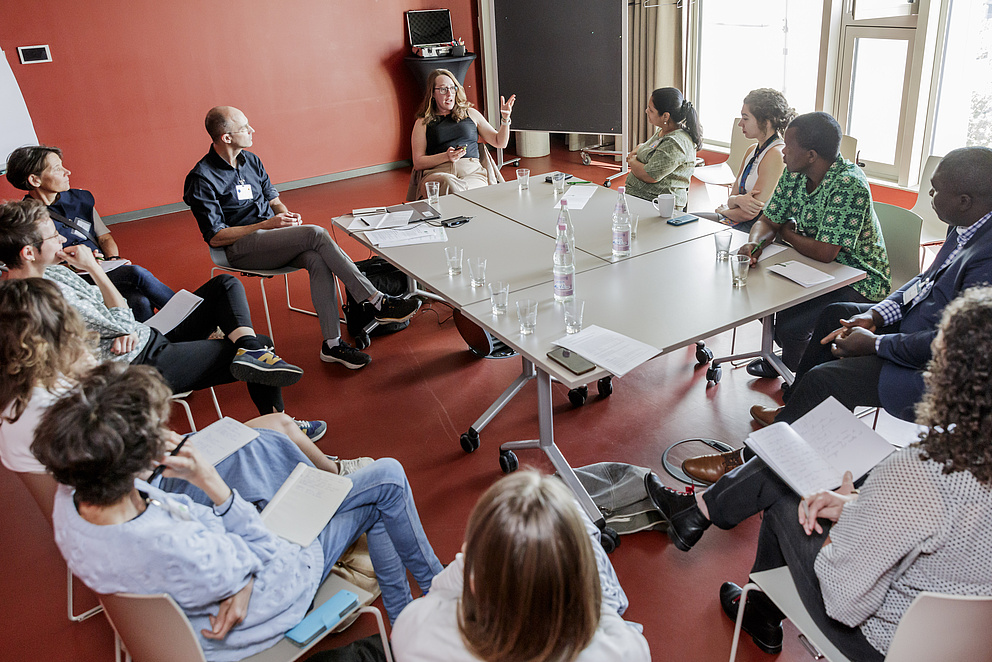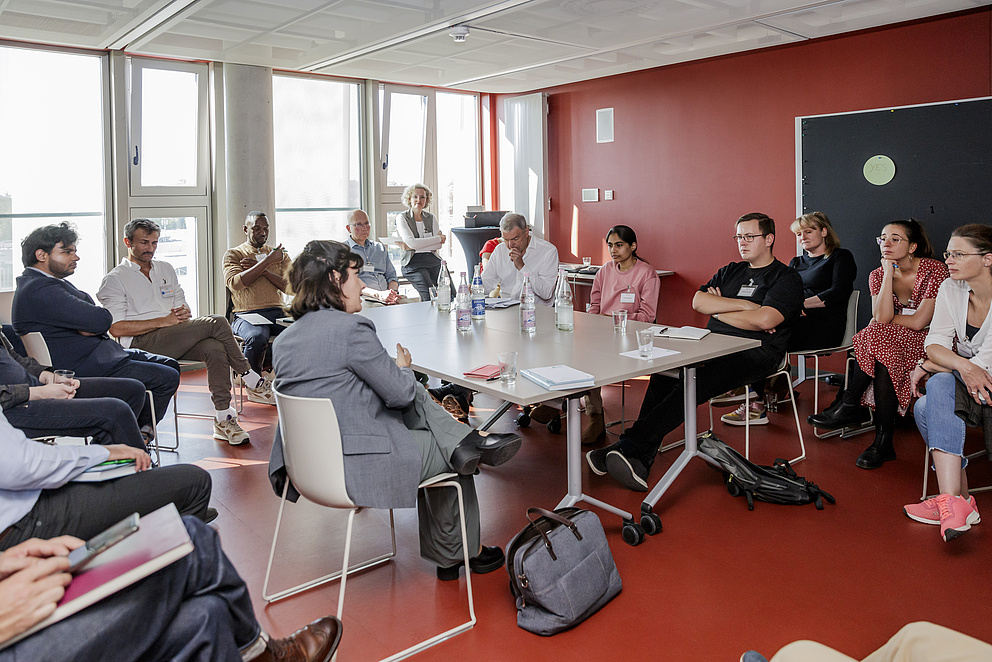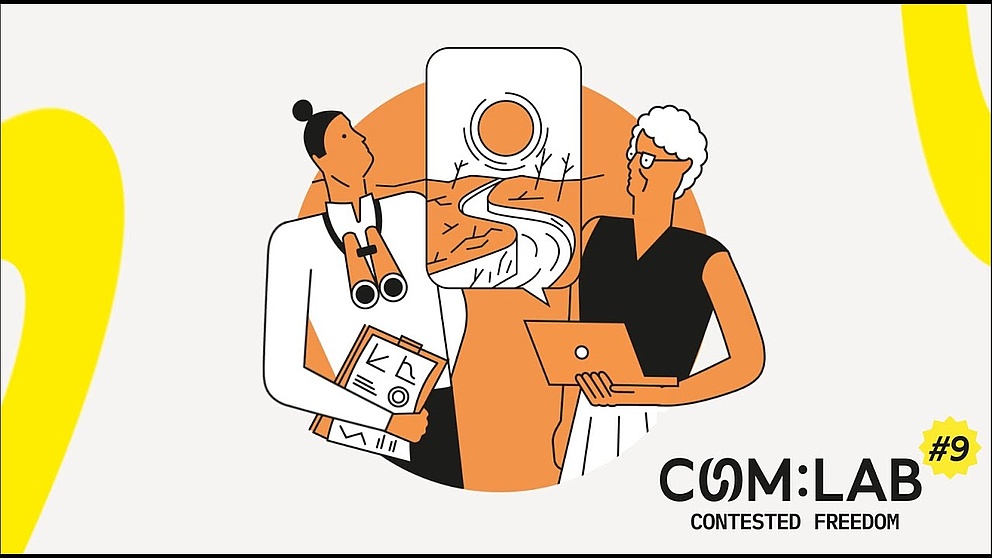Jump to the content
- {{#headlines}}
- {{title}} {{/headlines}}
The ninth Communication Lab addressed areas of conflict related to freedom in an ever more complex world. Climate and migration issues, in particular, challenge us to consider how we want to live together in societies and what values we share. What does research tell us about the concerns and needs of communities on- and offline, about election and consumer behaviour and political opinions? And how can science and the media cooperate to communicate migration, AI and the climate crisis in a trustworthy, accessible and fact-based way?
From 19 to 22 September, 40 participants from 28 countries as well as other experts from the media, academia, the political arena and civil society shared ideas on blind spots and effective strategies in science communication. ComLab#9 offered panel discussions, workshops, networking formats and group work for a targeted exchange between academia and the media. The objective was to learn from one another. At the same time, the participants formed interdisciplinary teams and supported by experienced mentors, developed project ideas for various target groups on migration, the climate crisis and AI.
Panel Discussion: Freedom’s conflict zones
How can we still reconcile individual freedom and the common good today? On the first ComLab day, Ralf Beste (head of the Department of Culture and Society at the Federal Foreign Office), Celine Teney (Professor of Macrosociology at Freie Universität Berlin), Yannis Theocharis (Professor of Digital Governance at TUM, Munich) and Ulrike Winkelmann (editor-in-chief of taz) discussed the gulf between scientific knowledge and the success of populist discourse. They addressed the following guiding questions: What can research and the media do to counteract fake or simplified statements on migration and the climate crisis? What influence do social media have on shaping public debate and encouraging hate speech, fake news and radicalism? And do research and reporting have a special responsibility to generate democratic awareness in times of increasing populism and disinformation?
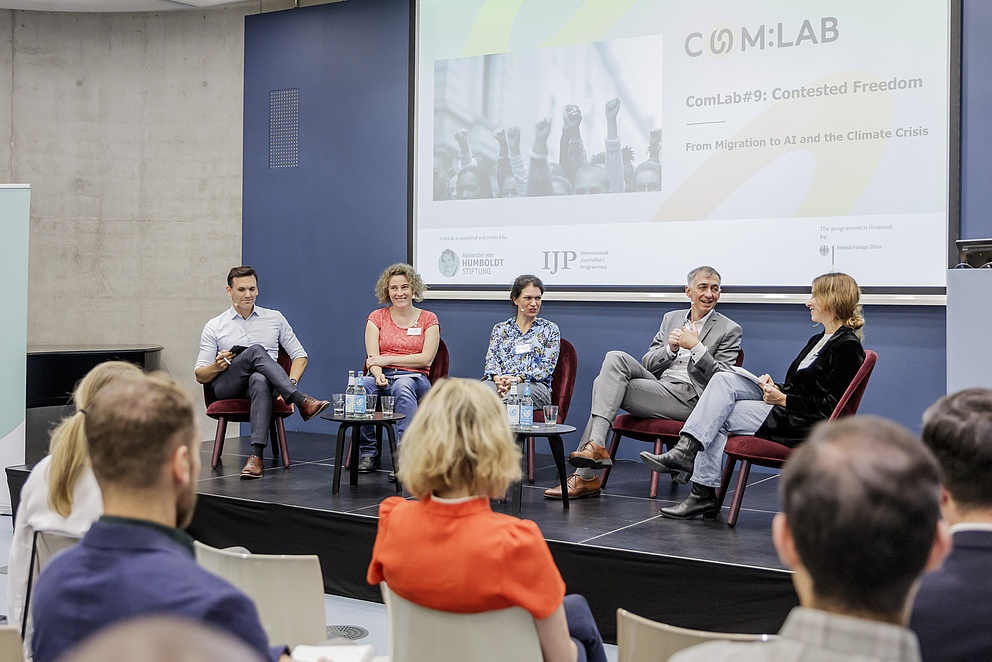
Round Tables
The main focus of the various discussion rounds on the topics of migration, AI and climate narratives was on cross-national and cross-disciplinary dialogue with experts from academia and the media.
Climate narrative
With Damian Carrington (The Guardian), Sahana Ghosh (Nature India), Brian McGill (University of Maine) and Vânia Zuin Zeidler (Leuphana University) the participants discussed the following questions:
- What are blind spots in climate communication?
- How are different people, stakeholders, landscapes and knowledge systems portrayed in current climate debates and reporting?
- What are the obstacles or hurdles when reporting about climate issues?
- How can we bring different knowledge resources on the climate crisis together – and make them accessible to a lay audience?
Migration dynamics
The panel of experts, Tina Lee (Unbias The News) and Ingmar Weber (Saarland University), addressed the questions:
- How do we talk about migration, and how should we talk about migration? What are the stories we need to hear?
- What kind of images do we have of migrants and migrant flows globally and are they grounded in real-life-situations and facts?
- What are the challenges when it comes to reporting about the reality of (forced) migration?
- We need data to foresee migration dynamics, but what are the challenges of data collection and analysis/assessment (e.g., in regions of Africa)? How should we talk about these challenges (transparency of data)?
Responsible AI
In the discussion round with Clive Cookson (Financial Times) and Milagros Miceli (Weizenbaum Institut), the participants shared ideas on the following questions:
- What are the areas in which AI can significantly improve and simplify our lives and how? What are the new “AI frontiers” in medicine, engineering, climate innovation?
- Do algorithmic systems produce new social hierarchies and social groups, or are “old” inequalities simply reinforced, see e.g., data colonialism?
- How does AI affect the global work force? Who are the losers and winners in industry, communications and the global health system?
- How can we make the workings of AI, the technical and algorithmic processes, more accessible to different target groups? What does “AI literacy” look like?
Deep Talks – where migration, climate change and AI meet
In the Deep Talks, the Humboldt Professor Ingmar Weber (Saarland University) and the Humboldt Award winner Brian McGill (University of Maine) explored the connections between migration, Big Data and climate change. McGill, a biodiversity expert, showed how macroecology methods, and especially the amalgamation of various datasets, together with the use of the newest technology – from drones to AI – can help us to measure the impact of human behaviour on climate change more precisely and thus protect nature better. Ingmar Weber presented his research field of social computing and explained how Big Data analyses of our digital footprints can help us to understand current and future migration dynamics. In the following discussion round with Clive Cookson, senior science editor at the Financial Times, the focus was on the security and trustworthiness of publicly accessible data as well as its use in protecting endangered groups.
Diversity in science communication
What is needed to break through the glass ceiling – not just for women but for everyone who is maginalised and underrepresented in the science and media systems? From appointment procedures via publication structures to working culture and content decisions: researchers and journalists with a migration background, people of colour, women and LGBTQI+ are still fighting for equality. So, what does a holistic approach to more diversity in science communication look like? Together with the moderator Alexandra Eul, the panel of Vânia Zuin Zeidler (Professor for Sustainable Chemistry of Renewable Organic Resources and Pro-Dean of Gender and Diversity, Leuphana University) and Tina Lee (editor-in chief, Unbias The News) discussed the obstacles to increasing diversity and inclusion in science communication and research as well as best practices.
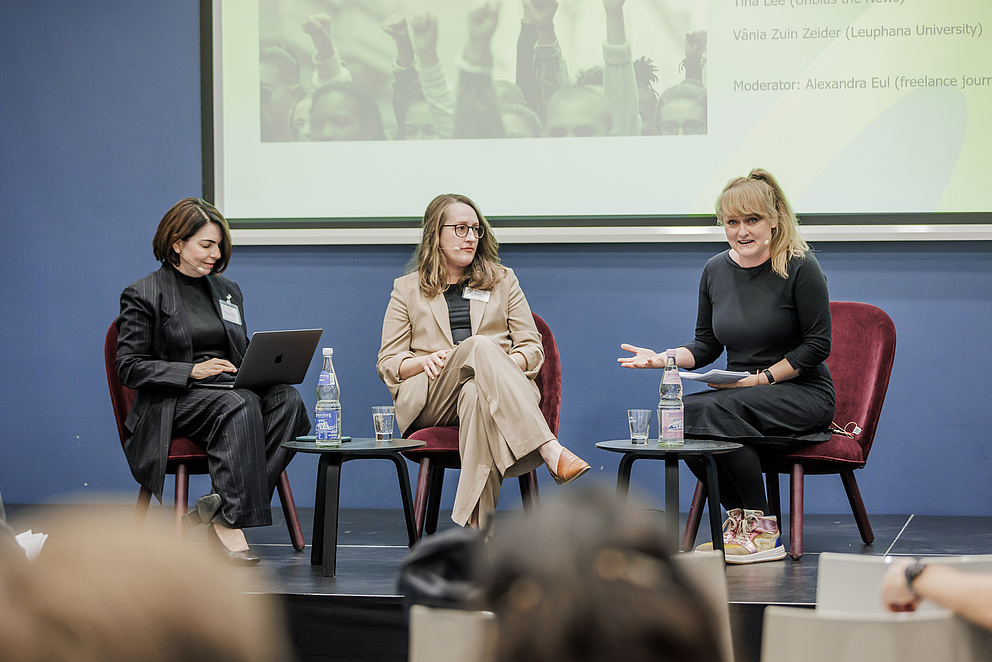
Storytelling, participation and pitching workshops
After intensive networking conversations, the next events were workshops on methods and formats for storytelling and science communication. Christian Meier (Die Welt) and Jens Radü (Der Spiegel) told the participants about AI in editorial work and discussed the ethical and practical impact of new tools in journalism. Philipp Schrögel (TU Cottbus) reported on participative formats in science communication and emphasized the challenges they posed as well as their potential use. In the session “Hook Me!”, Anke Myrrhe, deputy editor-in-chief at Tagesspiegel, presented the basics of a good pitch. How do I get to the heart of my story/research topic: clearly, informatively and with a touch of humour? Jens Radü, managing editor at Der Spiegel, spoke about multimedia storytelling. In the workshop “Future Prototyping”, Nicole Loeser, founder of the Berlin-based Art for Futures Lab, took the participants on a journey to positive future scenarios in the migration, AI and climate worlds.
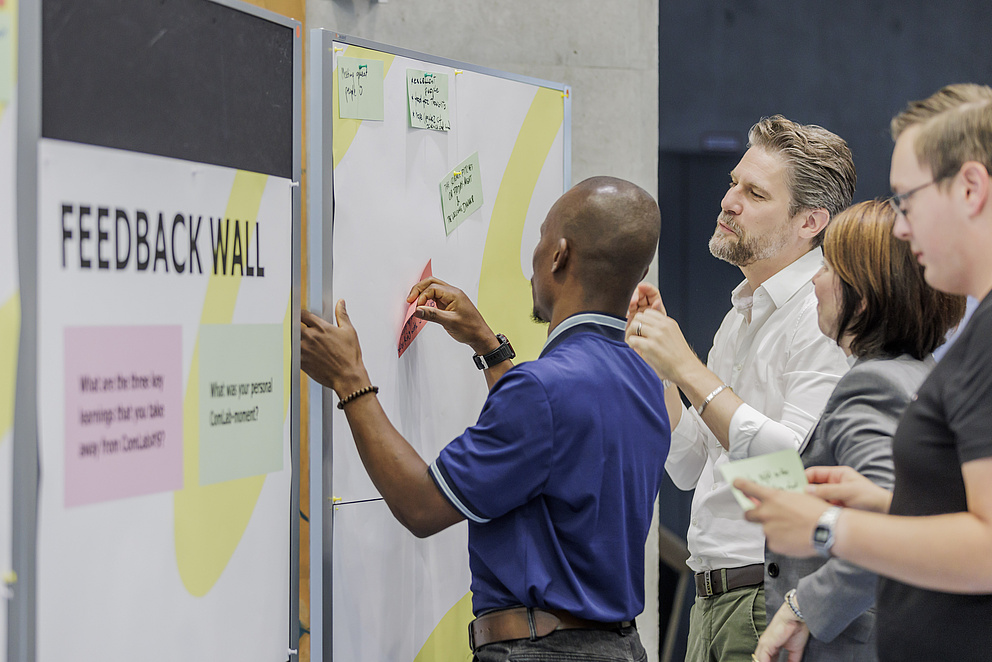
Slam session & awards
The international jury of editors – Sahana Ghosh (Nature India), Jens Radü (Der Spiegel) and Heike Vowinkel (t-online) – selected the best three project ideas. The latter proved particularly convincing thanks to the originality of the respective topic, the creative and target group-orientated way they were implemented and the interweaving of scientific expertise and storytelling. The awards went to:
- the Nigerian digital humanities researcher Onwu Inya and the Slovakian journalist Tomáš Hrivňák;
- the environmental scientist Mohammed Mofizur Rahman from Bangladesh and the Danish journalist Lise Josefsen Hermann;
- the German political and economic scientist Daniel Mügge and the German political analyst and advisor Sabine Muscat.
The audience award went to the French Antarctic researcher Mathieu Casado and the Serbian climate journalist Luka Stokic.
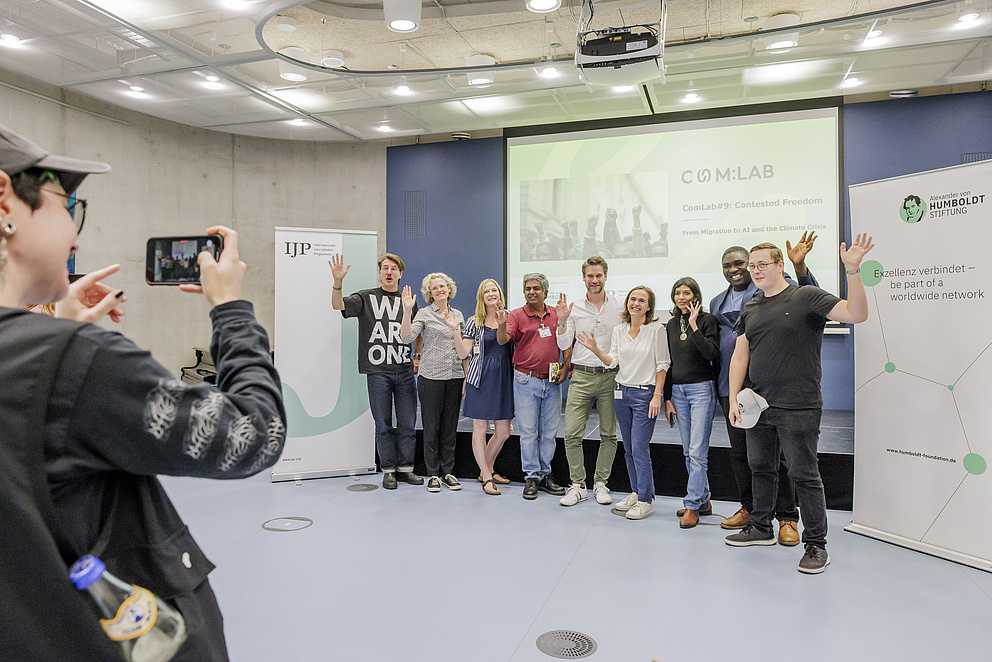
Communication Lab: Once a year, Humboldt Foundation fellows get together with journalists from all over the world – fellows of the International Journalists’ Programmes. During a three-day workshop, they form science-media tandems to develop an innovative journalistic project, supported by experienced mentors. Learning from one another is at the heart of the activity. What do we expect of one another? How can trusting collaboration succeed? And what makes good science communication?
The Communication Lab is funded by the Federal Foreign Office and is a collaboration between the Alexander von Humboldt Foundation and the International Journalists’ Programmes.

